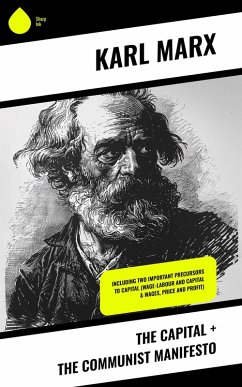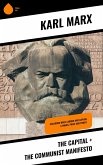In "The Capital" and "The Communist Manifesto," Karl Marx provides a foundational critique of capitalist society through the lenses of economics, sociology, and political theory. "The Capital" meticulously dissects the capitalist mode of production, elucidating the mechanisms of labor, value, surplus, and capital accumulation, while employing a dialectical materialist approach that intertwines philosophical inquiry with empirical observation. Conversely, "The Communist Manifesto" serves as a rallying cry for the proletariat, advocating for class struggle and the eventual overthrow of capitalist systems. Together, these texts form a cohesive narrative that challenges the status quo and seeks to illuminate the socio-economic underpinnings of modernity. Karl Marx, born in 1818 in Trier, Prussia, came from a middle-class background, which profoundly influenced his perspective on class and social relations. His experiences, including a career in journalism and interactions with revolutionary thinkers, shaped his critical stance on capitalism. Both works reflect his commitment to social justice and his belief in the transformative power of collective action, rooted in historical materialism. Readers interested in political philosophy, social theory, or economic critique will find these texts indispensable. Together, they not only articulate the injustices inherent in capitalism but also inspire movements aimed at constructing a fairer world. Engaging with Marx's work is essential for anyone seeking a deeper understanding of contemporary socio-political dynamics.
Dieser Download kann aus rechtlichen Gründen nur mit Rechnungsadresse in A, B, BG, CY, CZ, D, DK, EW, FIN, F, GR, HR, H, IRL, I, LT, L, LR, M, NL, PL, P, R, S, SLO, SK ausgeliefert werden.









